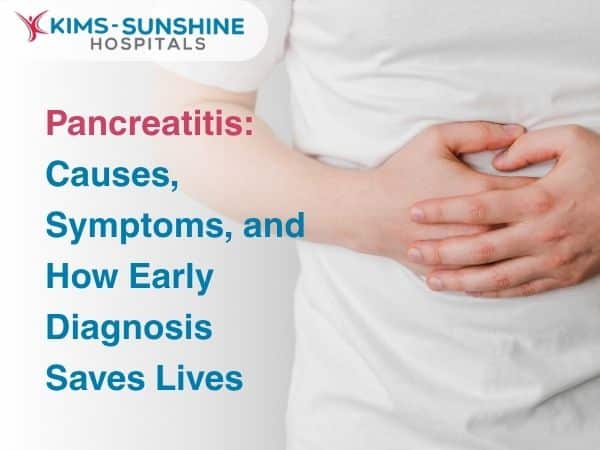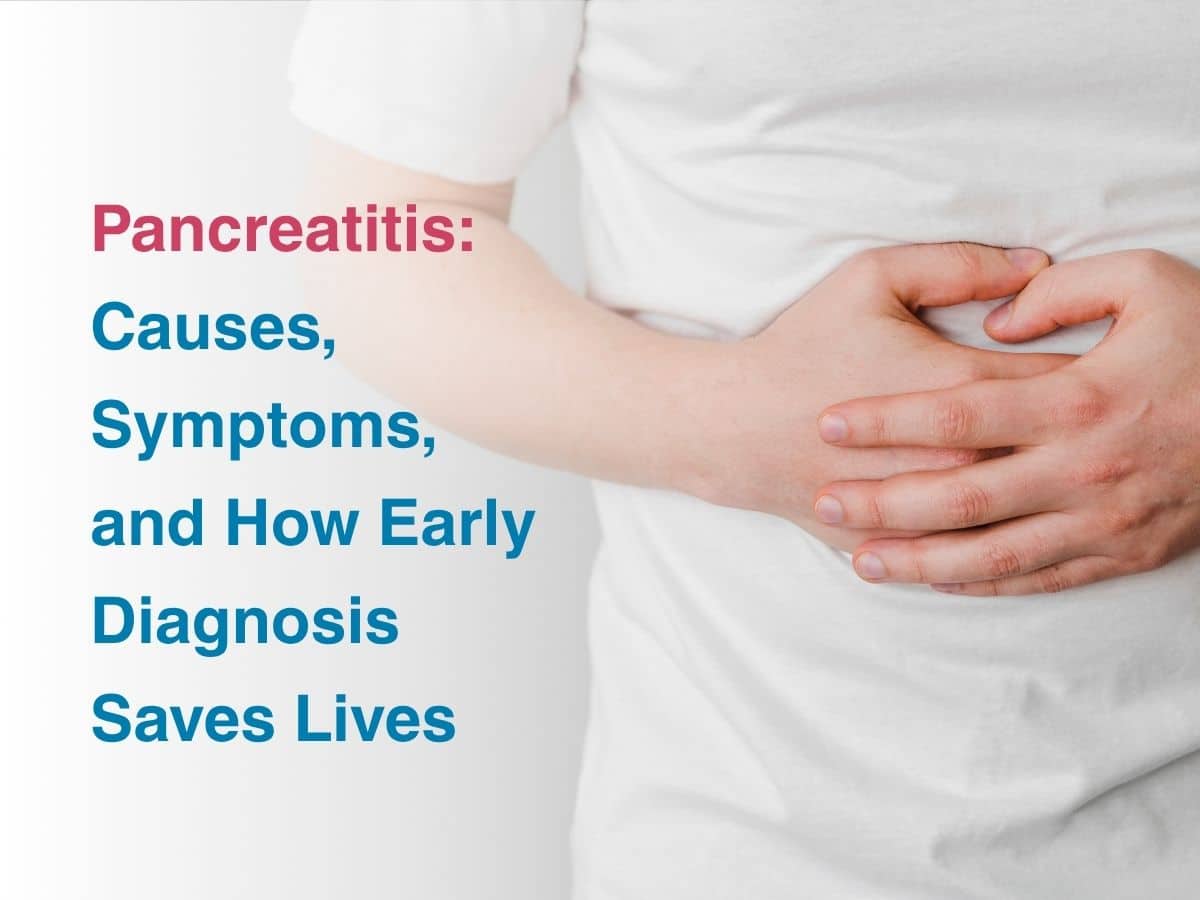
Pancreatitis: Causes, Symptoms, and How Early Diagnosis Saves Lives
 The pancreas is an extremely crucial endocrine organ in the body which functions as a part of the digestive system. Its main function is to secrete insulin and amylase, thus helping in the digestion of food you eat and in regulating blood glucose levels throughout. Pancreatitis is a condition where the inflamed pancreas are no longer able to function normally. This can be a sudden, acute occurrence or may be chronic in nature. Pancreatitis is more commonly diagnosed in the southern parts of India, when compared to other regions of the country.
The pancreas is an extremely crucial endocrine organ in the body which functions as a part of the digestive system. Its main function is to secrete insulin and amylase, thus helping in the digestion of food you eat and in regulating blood glucose levels throughout. Pancreatitis is a condition where the inflamed pancreas are no longer able to function normally. This can be a sudden, acute occurrence or may be chronic in nature. Pancreatitis is more commonly diagnosed in the southern parts of India, when compared to other regions of the country.
What Is Pancreatitis?
Pancreatitis is a result of inflammation of the pancreas. This inflammation itself can occur due to a few underlying reasons. If there is some acute injury of the pancreas, then you will have short term pancreatitis which will get better in a few days. But, when you have chronic pancreatitis, management becomes very important, as complications are hard to deal with and can be life threatening in some scenarios.
Causes Of Pancreatitis (Gallstones, Alcohol, Meds)-
The most common cause of pancreatitis in the Indian subcontinent and all over the world is the presence of gallstones, which when present in the common bile duct, can stop the drainage of pancreatic juice via the pancreatic duct. This build up of fluids and enzymes can cause the pancreas to get injured and digested by itself- and this type of inflammatory response is termed gallstone pancreatitis.
The other major cause is consumption of alcohol on a regular basis, though the reason for why inflammation in the pancreas occurs is not well understood. Some people may not drink or have gallstones, but still have pancreatitis because of some infection, metabolic disorders, cancer or traumatic injury. It may also be an unwanted side effect of certain medications, but even fewer people suffer from the condition with no known apparent cause – and it is called idiopathic pancreatitis then.
Symptoms Of Acute And Chronic Pancreatitis-
Sudden onset of nausea, vomiting, fast and shallow breathing, abdominal pain which radiates to the back, a fever or fast heart rates- all or some of these signs point towards acute pancreatitis. Chronic pancreatitis on the other hand can cause indigestion, weight loss, fatty poop, low blood pressure and make you feel faint. When these next bunch of symptoms begin to appear, it means your pancreas is not functioning properly and is beginning to shut down.
Pancreatitis Diagnosis (Blood Tests, Imaging)-
Diagnosis of this condition hinges on the use of detailed blood tests- where doctors look for amounts of pancreatic enzymes and hormones present in your blood. If the values are really high, then you may have pancreatitis. But, confirmation of the condition can be gotten with imaging- cross sectional CT or MRI scans can reveal swelling in the organ. They may also do a simple glucose test, to check how well your body is digesting glucose, by looking for insulin activity.
Faecal fat analysis is a specialised test to check for how much fat is present in your faecal matter. Higher amounts mean you are not absorbing fat normally.
Stool elastase tests are done to check for elastase levels in your stool – this is then used to understand if the pancreas are making enough enzymes.
Complications Of Untreated Pancreatitis-
Acute pancreatitis, if not treated soon, can cause life threatening complications like necrosis and infection (severe inflammation and swelling of the pancreas, where blood flow gets cut off, causing cells to die). Dying tissue is a prime site for infection and can cause septicemia or septic shock in extreme cases. Pancreatic pseudocysts may also form, but may not be symptomatic in most cases. If you have repeated bouts of pancreatitis, it can become a chronic condition and cause fibrosis and scarring of the pancreas. You may then develop Type 1 diabetes, not digest food properly or have a higher risk of developing pancreatic cancer, if it is not treated systematically.
Conclusion
Pain relief, IV nutrition and tube feeding are enough for acute pancreatitis. But, removal of gallstones is necessary if that is the underlying cause for pancreatitis. Lifestyle changes are recommended if you have chronic pancreatitis. You may also need to take supplements and take care of yourself- especially if you have already begun to develop Type 1 diabetes. In extreme cases, the whole of the pancreas can be surgically removed, in which case you will need enzyme and insulin injections regularly, from then on. Talking to a gastroenterologist can help you understand the severity of your condition and how it can be treated in the right way.






